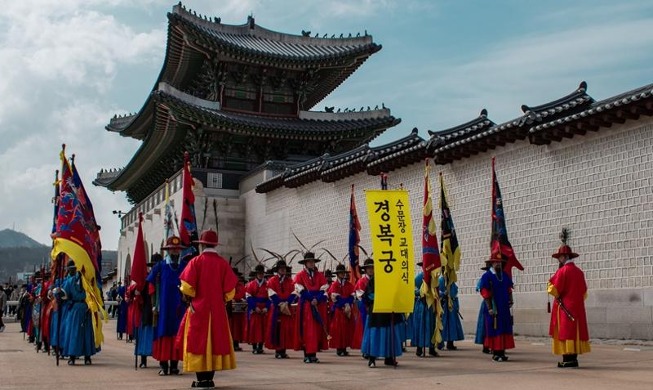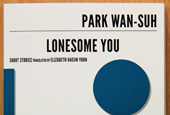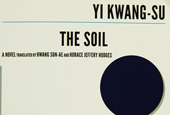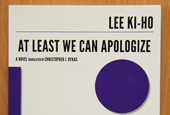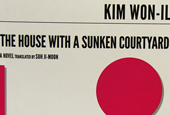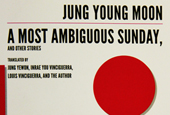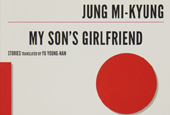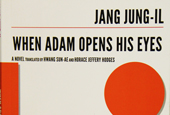-
 Korea.net's 24-hour YouTube channel
Korea.net's 24-hour YouTube channel- NEWS FOCUS
- ABOUT KOREA
- EVENTS
- RESOURCES
- GOVERNMENT
- ABOUT US
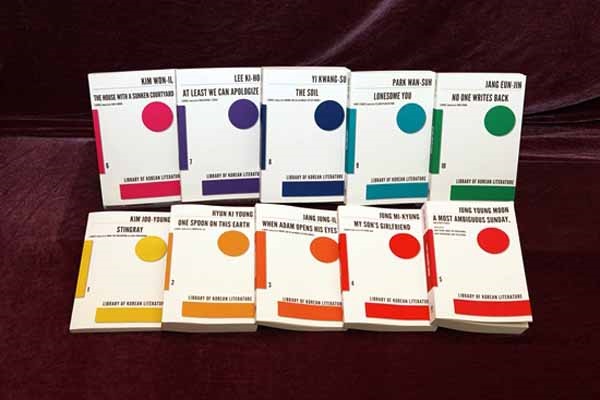
The Library of Korean Literature series is a collection of ten Korean novels published in English in the U.S. last year. (photo courtesy of the Literature Translation Institute of Korea)
The last volume in the ten-part Library of Korean Literature series is “No One Writes Back,” Jang Eun-jin’s full-length novel published in 2009.
The story develops as Jihun, a thirty-something-year-old man, comes across various people as he travels along with his dog, a former guide dog, which, ironically, has gone blind itself. The story focuses on the strong desire of a man living in modern society to communicate with others by means of letters.
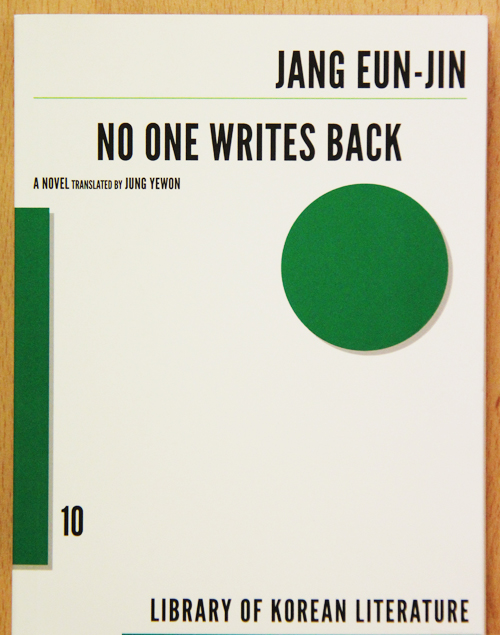
Jang Eun-jin’s novel “No One Writes Back” was published in English last year.
Jihun, an unmarried man in his thirties, referred to as “I,” leaves home and starts on his journey carrying only an old backpack, with Wajo, the blind dog which used to guide his grandfather, at his side. The man has been going wherever his feet have taken him for three years. Traveling from place to place all those years, he encountered many people on the street, from all walks of life and with all different stories.
The narrator calls those people by number, instead of by name. For example, a child, who puts his friend into a coma by accident while playing together, is number 238. An artist who scrapes pieces of chewed gum off the ground and paints on the round, flat, worthless pieces of candy is called number 99. A person who has stayed on the train, wrapped in thought, as he cannot clear his mind of his ex-girlfriend’s memories, is number 109.
As night falls, the narrator goes back to his motel and writes a letter or two to some of the people he met that day. The letter tells of the everyday stories he has experienced throughout his journey and always ends asking for a reply. Sadly, he has never heard back from anyone.
Even though he sends a letter to his own family sometimes, he never receives anything back. He is now determined that he will stop his journey if no one ever answers.
Why does he keep writing letters to which no one responds? The narrator explains:
“I write letters because I want to convey to someone the stories of these people, but also because I want to let someone know that a day had existed for me as well. Letters, in other words, are like journal entries for me. The only difference is that the day does not stay with me, but is sent to someone else. Journals are monopolized, but letters are shared. I began to obsess over letters when I became acutely aware of the notion of ’two.’ While traveling, you grow ever more aware of that notion. Perhaps that’s why I began my journey.”
The real reason, however, as to why he ends up being such a lonesome wanderer and why he writes ownerless letters, comes to light at the end of the story.
Three years ago, he received a break-up letter from his girlfriend. He suddenly thought that he shouldn’t let her go like this. He was on the road that day, in a car, with all his family members, and stopped and got out and ran to tell her, “Don’t leave me!” He didn’t know that that would be the last time he ever saw his family.
He wants to tell his stories by writing letters to those who no longer exist in this world and his world, but who still live on, deep in his memories.

Writer Jang Eun-jin (right) poses with her twin sister Kim Hee-jin, also a novelist. They are called the “twin novelists.” (photo: Yonhap News)
The creator of the story, Jang Eun-jin was born in 1976 in Gwangju and earned a bachelor’s degree in geography from Chonnam National University. In 2004, the writer made her literary debut with her award-winning first novel, “Kitchen Laboratory.”
She has since published two more novels and a collection of short stories: “Alice’s Lifestyle” (2009) and “Where Is Her House?” (2011) are both novels and “Knocking On An Empty House” (2012) is her short story collection.
By Sohn JiAe
Korea.net Staff Writer
jiae5853@korea.kr




